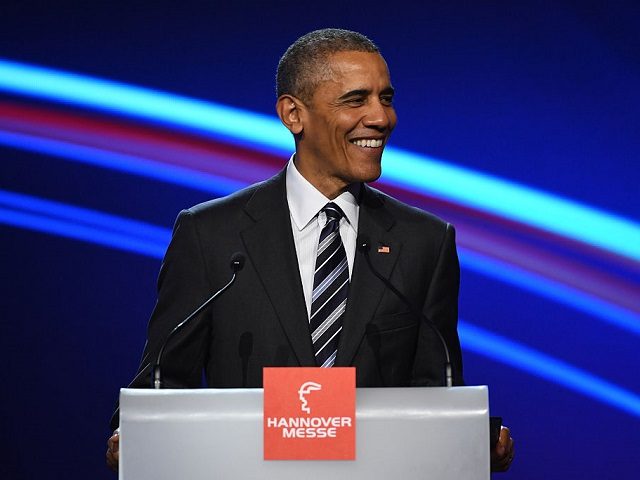President Obama expressed confidence that his Trans-Pacific Partnership deal will pass Congress after members survive their contentious primaries and the presidential nominees of both parties are sorted out.
“I think after the primary season is over the politics settle down a little bit in Congress, and we’ll be in a position to start moving forward,” Obama explained during a press conference with Angela Merkel in Germany today.
Obama reminded reporters that a majority of Congress already passed the authorities for his administration to negotiate the complex deal with 11 countries, and it was only a matter of political nervousness.
The House of Representatives passed trade promotion authority in June 2015 with a narrow vote of 218-208. In the Senate, 13 Democrats joined Republicans to help pass the legislation with a filibuster proof majority of 60-37.
The deal has led several political candidates to flip their support of the deal to oppose it for political reasons.
Former Secretary of State Hillary Clinton, who helped lay the groundwork for Obama’s trade deal in his administration, unexpectedly turned against it as a presidential candidate of the Democratic party.
Sen. Ted Cruz voted against giving President Obama authority to negotiate the deal, after voicing support for the legislation.
In his press conference with Merkel, Obama acknowledged that people around the world were “unsettled” by the globalization of the economy and suspicious of trade deals.
“Although trade has brought enormous benefits to many of our countries that have been engaged in trade, although, typically, jobs that are produced from exports have higher wages and better benefits than those that are not involved with the export market, people visibly see a plant moving and jobs lost, and the narrative develops that this is weakening, rather than strengthening, the position of ordinary people and ordinary workers, and it’s forcing them to compete with low-wage labor,” he said.
Obama argued that it was important for the United States to open markets to the rest of the world so that America’s businesses could be more competitive.
“95 percent of the world’s markets are outside of our borders, and if we’re not there, present, we’re going to have problems,” he said.

COMMENTS
Please let us know if you're having issues with commenting.